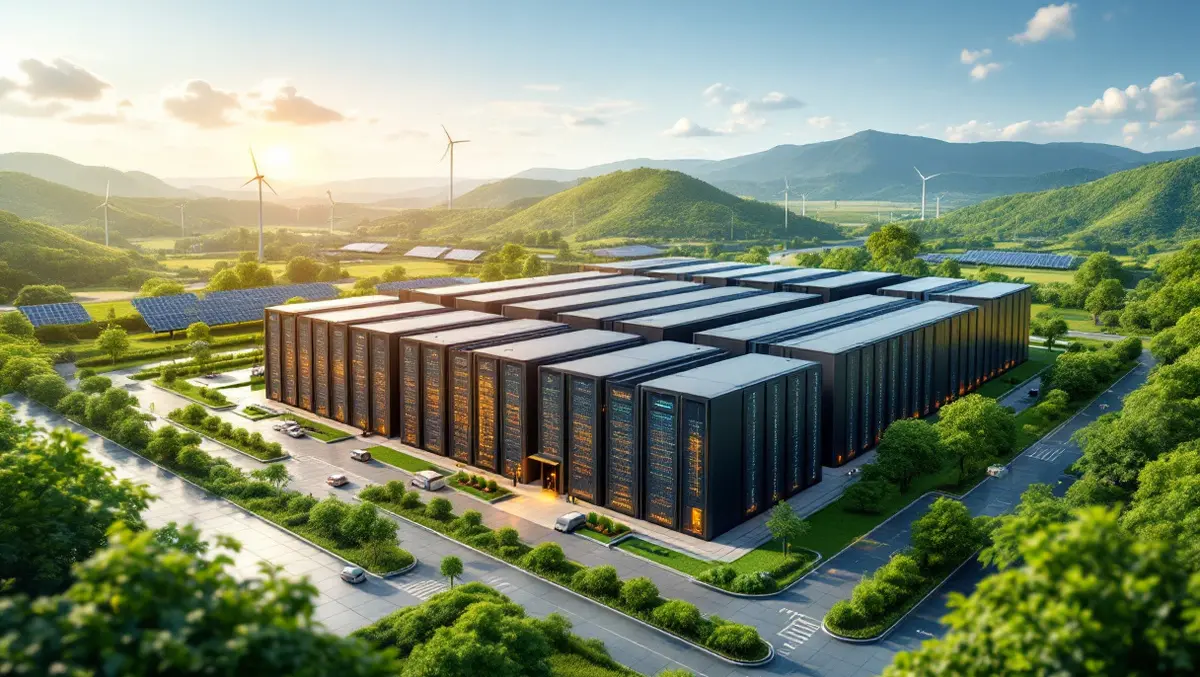
Data centres face pressure to improve energy & sustainability
Rising demand for cloud computing is prompting scrutiny of data centre energy use and placing pressure on businesses to adopt more sustainable practices.
As data centres account for an increasingly significant share of global electricity consumption, organisations across industries are under growing pressure to address their environmental impact. Concerns over the environmental footprint of data centres are leading businesses to seek out greener cloud solutions, not only for environmental reasons but also for operational and financial benefits.
Node4, which provides cloud managed services and business applications, has outlined a series of strategies developed in collaboration with Carbon Neutral Group aimed at helping companies reduce their environmental impact and cut energy costs while shaping a more sustainable future for cloud computing.
One of the key recommendations is to prioritise energy efficiency. According to Node4, upgrading infrastructure—such as enhancing cooling systems, replacing outdated equipment, and optimising data centre design—can result in noticeable reductions in energy consumption. A spokesperson for Node4 said, "Energy efficiency remains one of the most effective ways to reduce environmental impact in data centres. Simple infrastructure upgrades, such as enhancing cooling systems, replacing outdated equipment, and optimising designs, can deliver significant reductions in energy consumption. For example, Node4 reduced energy consumption by optimising its infrastructure and replacing older systems. These simple upgrades can result in substantial reductions in energy usage over time."
Another central strategy is the adoption of renewable energy sources. Node4, in partnership with Carbon Neutral Group, has transitioned its own data centres and attached offices to renewable energy tariffs in a move designed to reduce its overall carbon footprint. Commenting on this strategy, a spokesperson stated, "Transitioning to renewable energy is a critical step in a carbon reduction strategy. While renewable energy tariffs can fluctuate, businesses should prioritise green energy providers to power their data centres. Node4 has already transitioned its data centres with attached offices to renewable energy tariffs, reducing its overall carbon footprint and setting a benchmark for others in the industry."
Innovation in sustainable infrastructure is also highlighted. Node4 has implemented technologies such as low-impact fire suppression systems, water-efficient cooling methods, and intelligent lighting, as well as establishing virtual data centres. These measures are intended to cut waste and align infrastructure operations with wider sustainability goals. According to the company, "Sustainability goes beyond just energy consumption - it's also about reducing waste and implementing eco-friendly infrastructure. Integrating technologies such as low-impact fire suppression systems, water-efficient cooling, and intelligent lighting can support long-term sustainability goals. Node4 has established virtual data centres and implemented technologies to reduce waste levels, demonstrating how infrastructure innovation can complement broader sustainability efforts."
The use of smart energy monitoring is another important strategy for continuous improvement. By installing sub-meter monitoring systems, Node4 is able to collect data about power consumption across its facilities and use this information to make informed decisions around energy optimisation. The company stated, "Smart energy monitoring is key to identifying inefficiencies and improving sustainability. By implementing sub-meter monitoring systems, Node4 is able to track power consumption and make data-driven decisions to optimise energy use across its facilities. Businesses looking to reduce their energy consumption can use similar systems to identify areas for improvement and maintain high levels of energy efficiency."
Engagement with broader sustainability initiatives is also recommended, such as participating in tree planting projects, which can help companies demonstrate their commitment to sustainability and foster stakeholder trust.
Node4 and Carbon Neutral Group maintain that the shift towards sustainable cloud computing is driven by the need to meet global sustainability targets in addition to efficiency and cost reduction. Their perspective is, "The shift to sustainable cloud computing is more than just a trend. It's essential for businesses that want to meet global sustainability targets while improving efficiency and reducing costs."
There is also a commercial motive, as there is mounting demand from consumers, investors, and partners for technology firms and cloud providers to show evidence of sustainable practices. "For tech and cloud companies, the benefits go beyond operational savings. There is a growing demand from consumers, investors, and partners for businesses to demonstrate a commitment to sustainability. By adopting sustainable strategies, companies can reduce their carbon footprint, improve operational efficiency, and lead the way in the transition to a more sustainable cloud ecosystem," the company added.


